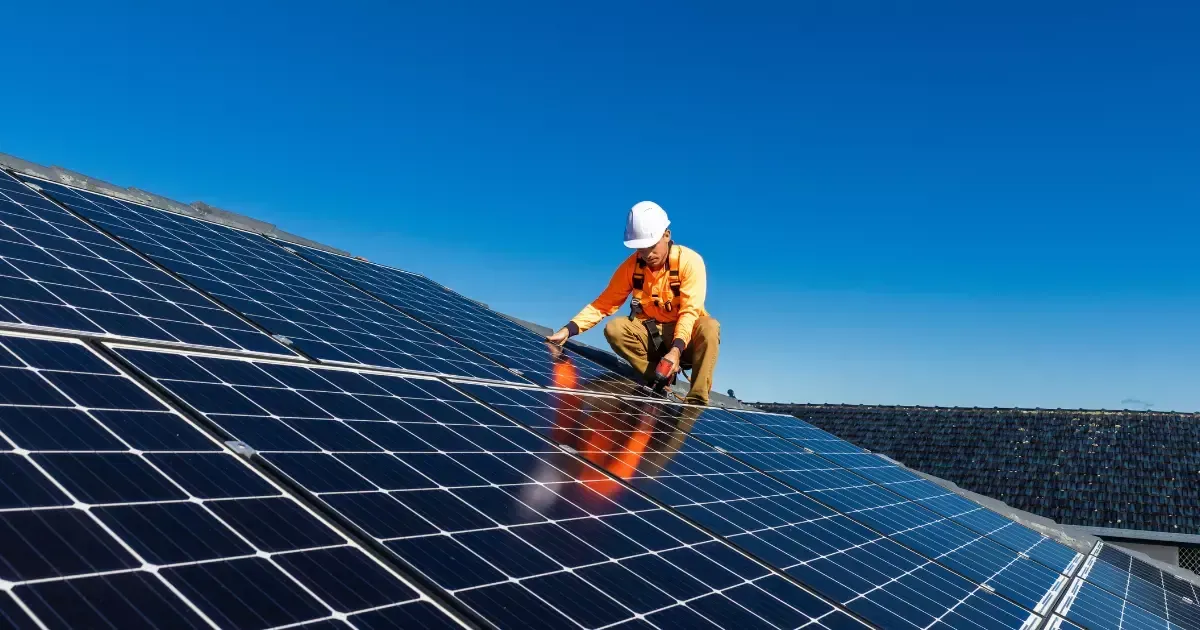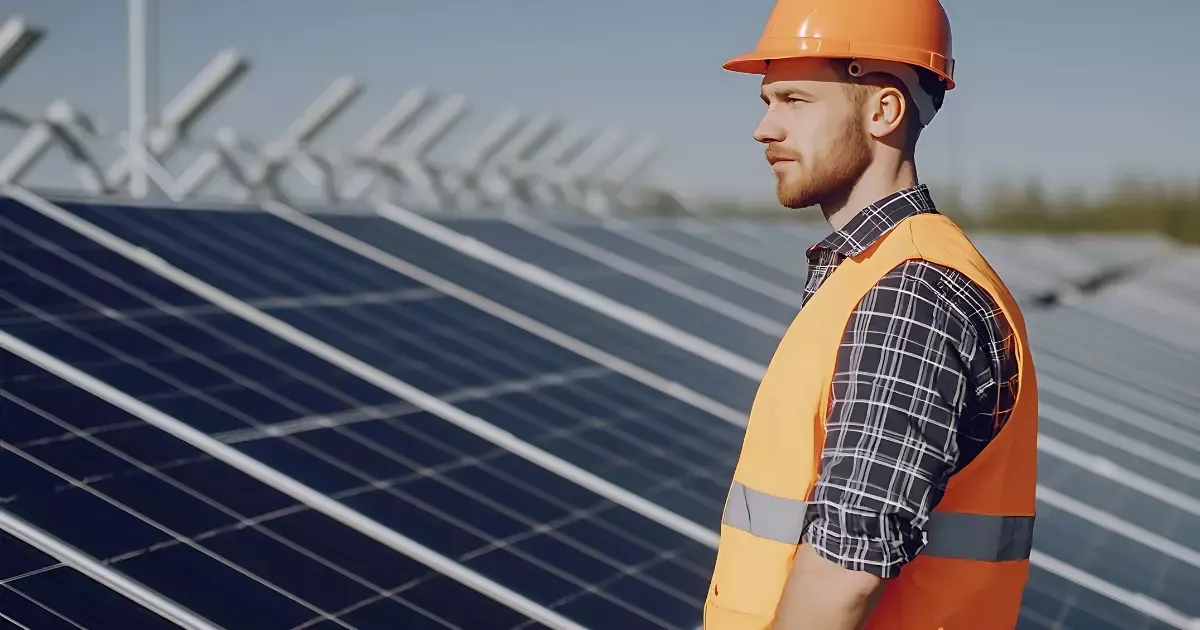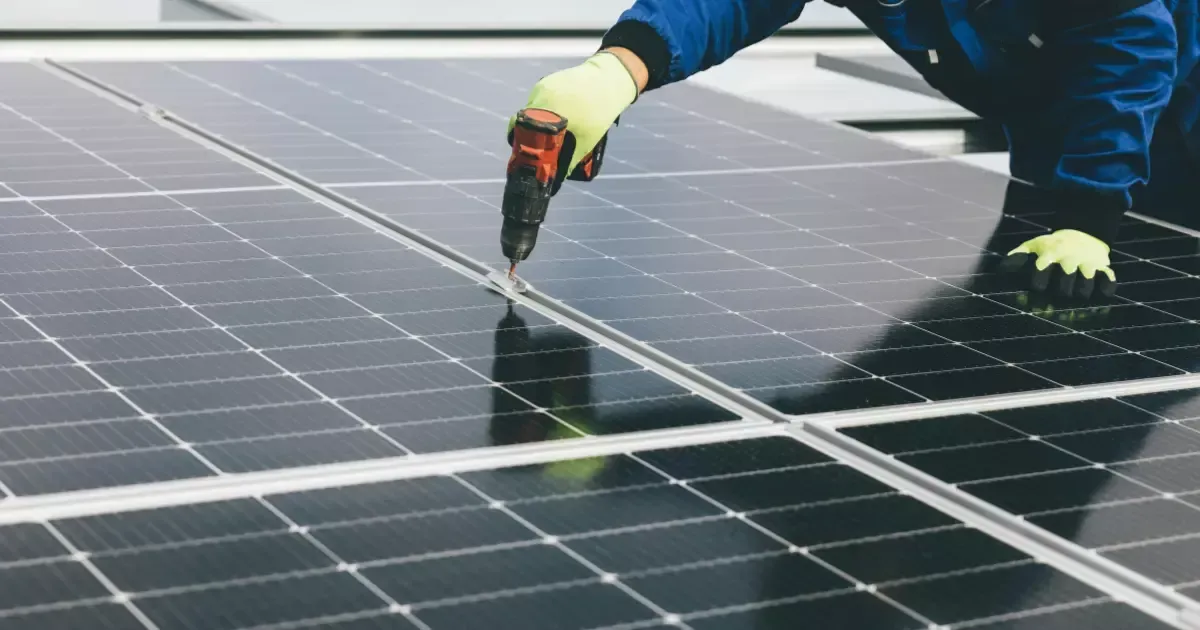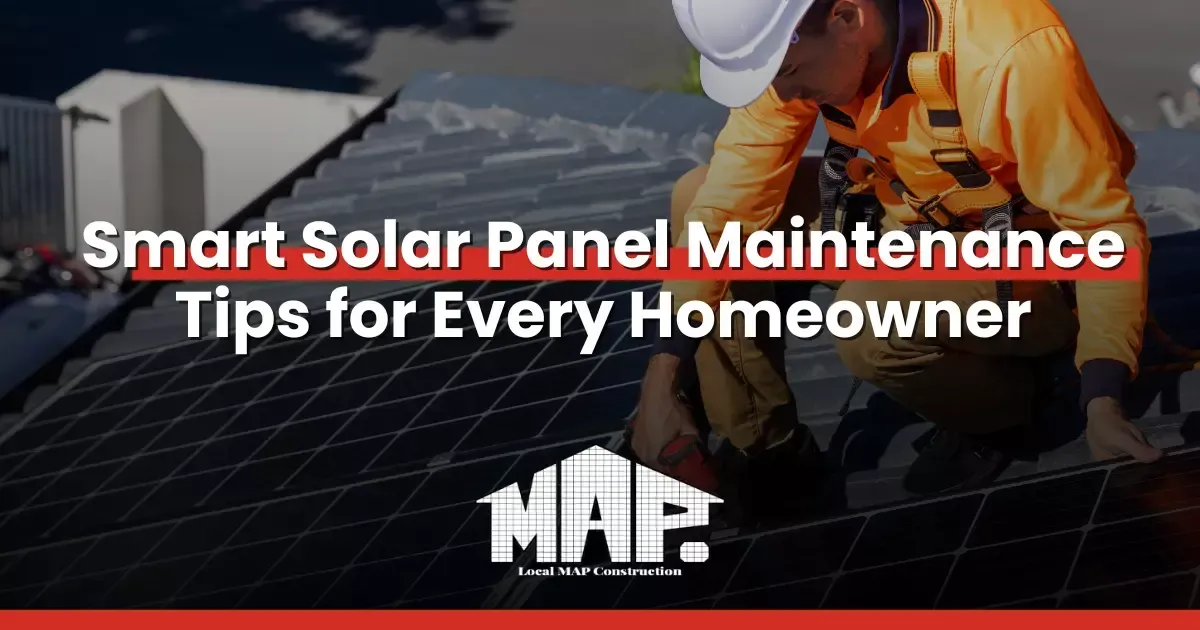Solar panel maintenance is one of the smartest ways to keep your home powered by clean solar energy for years to come. Regular solar panel maintenance not only protects your investment but also helps your solar system perform at its best. Simple steps like solar panel cleaning, timely inspections, and system monitoring can boost electricity production and cut down on long-term costs. With regular maintenance, your solar panel systems deliver reliable power output while reducing your carbon footprint.
Why Is Regular Solar Panel Maintenance Important

Solar panel maintenance keeps your solar power systems operating efficiently and protects the lifespan of your equipment. Dirt, dust, and debris buildup reduce solar electricity production, which means your home draws more from the utility grid. Without care, PV systems may face issues such as solar panel cracks, loose mounting materials, or failing solar inverters. Regular upkeep helps identify problems early before they affect overall system performance.
Another reason is cost. Ignoring maintenance leads to expensive storm damage repair, reduced performance warranty coverage, and a higher cost of upkeep over time. A strong maintenance routine also protects against property damage from loose wiring or faulty electrical equipment. Staying proactive with inspections and professional cleaning allows your panels to resist weather damage, such as snowfall or hurricanes.
How Can Homeowners Maintain Solar Panels Regularly
Maintaining your solar equipment does not have to be complicated. Homeowners can follow a maintenance checklist that focuses on keeping panels clear, systems safe, and electricity production consistent. By adopting regular habits and working with a trusted solar contractor or solar installer, you help prevent small issues from becoming major setbacks. Maintenance also extends your production warranty and keeps your solar panel warranty valid under the terms of your warranty contract.
Clean Panels to Improve Efficiency
Solar panels, cleaning brushes, or light solar panel cleaning with water can remove dirt and pollen that block sunlight from reaching solar cells. A clean panel produces higher wattage ratings and keeps power junctions working properly. Avoid using a pressure washer, which may cause solar panel cracks or damage junction box seals. For best results, schedule professional cleaning once or twice a year.
Schedule Seasonal Inspections
Booking annual solar inspections or seasonal checkups helps spot issues like debris buildup, loose wiring, and electrical inspections, or worn mounting materials. Inspections often include roof inspections, system inspections, and checks on string inverters. Services may also use thermal imaging to detect temperature disparity and early defects. These inspections protect your solar panel service records and warranty coverage.
Monitor Energy Production
Using a solar monitoring system or a monitoring app helps track solar electricity production daily. You can quickly see drops in system performance caused by dirt, manufacturing defects, or solar panel cracks. Some solar monitoring apps also generate a solar energy fact sheet for homeowners, making performance evaluations easier to understand. Tracking output allows you to request service before your solar panel systems lose efficiency.
Follow Manufacturer Guidelines
Each solar provider offers clear instructions for maintaining panels, protecting power output warranties, and keeping performance evaluations valid. Following manufacturer's warranty rules prevents the loss of warranty coverage if issues occur. Check the warranty contract for maintenance requirements such as light cleaning, solar inspection frequency, and approved operations and maintenance (O&M) packages. Always keep records for proof of compliance.
This is paragraph text. Click it or hit the Manage Text button to change the font, color, size, format, and more. To set up site-wide paragraph and title styles, go to Site Theme.
What Should You Check During Routine Inspections

Routine system inspections focus on both solar equipment and overall safety. Start by checking for solar panel cracks, debris buildup, or signs of weather damage like storm damage or snowfall impact. Inspect power junctions, junction box, and wiring and electrical inspections for any loose or exposed electric components. Look closely at solar inverters and string inverters to confirm steady power output.
Professional inspectors often perform thermal imaging to detect temperature disparity, verify performance warranty status, and check for manufacturing defects. Other points include roof inspections, critter guard installation, and reviewing warranty coverage details such as weatherization warranty. These steps help identify risks before they grow into property damage or safety hazards.
How Can You Track Solar Panel Performance
The best way to measure performance is by using a solar monitoring system. These systems connect to your solar inverter and record data about daily solar electricity production. Homeowners can access results through monitoring apps, which allow comparisons between expected and actual power output. Drops in efficiency may signal solar panel cracks, shading, or failing solar batteries.
Tracking also supports long-term planning. A reliable monitoring app can reveal seasonal impacts like snowfall or debris buildup that affect energy efficiency. Detailed reports provide a clear view of how your renewable energy systems contribute to reducing your carbon footprint. Regular tracking ensures your solar energy system continues to deliver maximum cost saving and sustainable results.
What Steps Help Protect Your Solar Investment

Protecting your solar investment means taking preventive action. Homeowners who stay proactive not only keep their solar panel service records strong but also reduce risks of system performance issues, property damage, and even severe injuries from unsafe solar panel repairs. With proper care, your renewable energy resource remains reliable while keeping electricity production steady.
Follow Warranty and Manufacturer Requirements
Always follow the manufacturer's warranty and warranty contract instructions. Failing to comply can void your production warranty, performance warranty, or power output warranties. Checking warranty coverage helps homeowners understand limits on storm damage repair, weather damage, and manufacturing defects. Staying within guidelines protects long-term investments in solar panel installation.
Avoid Unsafe DIY Maintenance
DIY work without training can cause solar panel cracks, damage to electrical equipment, or even severe injuries. Avoid using unsafe tools like a pressure washer, and never open junction boxes or power junctions without knowledge. Hire a solar installer or licensed solar contractor to handle technical system inspections and storm damage repair. Safe care protects both your home solar panel system and your family.
Schedule Professional Maintenance Services
Professional crews provide services such as professional cleaning, solar inspection, performance evaluations, and solar panel recycling. They also offer operations and maintenance (O&M) packages that include system inspections, critter guard installation, and solar reviews of your overall solar panel service. These services keep solar energy fact sheet data accurate, protect warranty coverage, and maintain reliable energy efficiency.
When Should You Call a Professional for Maintenance
Call a solar contractor when you notice a sudden drop in power output, visible solar panel cracks, or faulty solar inverters. Reach out if your solar monitoring apps show major dips in system performance or if your panels suffer from storm damage. A professional should also be contacted after hurricane Florence-type events or severe weather damage. In many cases, annual solar inspections by a trusted solar installer prevent problems before they require expensive storm damage repair.
Frequently Asked Questions
How often should I clean my solar panels?
Most solar providers recommend light cleaning at least twice a year. If your home experiences heavy snowfall or dust, schedule more frequent solar panel cleaning to maintain efficient solar electricity production.
Can I use regular tap water for solar panel cleaning?
Yes. But avoid using a pressure washer. Use a gentle rinse and solar panels cleaning brushes to avoid scratches. For the best care, hire professional cleaning services.
What are the most common issues found during inspections?
Typical issues include debris buildup, wiring and electrical inspections showing wear, and solar panel cracks. Some inspections also reveal manufacturing defects or faulty solar equipment.
Do solar panels need maintenance in winter?
Yes. Winter can bring snowfall and storm damage. Clearing panels improves solar electricity production and protects your home solar panel system. Seasonal checks confirm system performance remains strong.
Does DIY maintenance affect my warranty?
Yes. Unapproved work may void your solar panel warranty and warranty coverage. Always check your warranty contract and call a licensed solar installer for safe repairs.
Wrapping
Keeping your solar panels in peak condition supports lasting performance, steady electricity production, and fewer costs of upkeep costs. Maintenance also extends the life of your solar panel systems, helping you maximize your return on investment. By practicing consistent solar inspection, tracking your system with a monitoring system, and using professional cleaning when needed, you keep your home powered by renewable energy systems.
Remember that your solar energy system is more than just equipment. It is part of a larger effort to use a renewable energy resource, lower your carbon footprint, and save on long-term costs. Protecting this system with proper care safeguards your warranty coverage and prevents unexpected property damage or repairs.
At
Local Map Construction, we are ready to help with your solar panel service needs. Call us today at 970-218-1620 to schedule inspections, cleaning, or professional maintenance for your home solar panel system or commercial solar panels.

